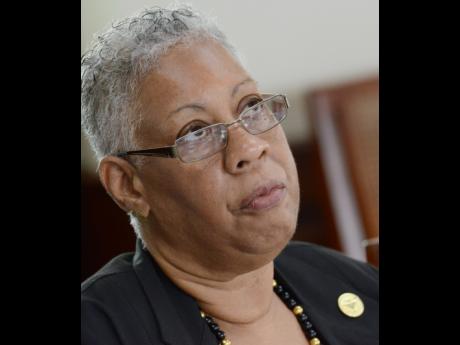Taking flight ... Money, benefits, quality of life causing docs., nurses to flee Jamaica after training
When 23-year-old medical student Aujae Dixon graduates next year, he intends to stay and work in Jamaica for the long haul. He doesn't expect the same for most of the class of 2017.
"A lot of persons just plan to be here because they have to complete their internship," said Dixon. "As soon as it is over, many try to leave to the United States for further training. And they usually remain there."
In fact, government data suggest that in recent years, eight in 10 Jamaican university graduates, including doctors, leave the country soon after gaining their degrees. Money, and the quality of life it affords people, is a major driver of this trek - at least that is what the majority believe about most of the health-care professionals who leave the island.
Indeed, when the question - in a September survey for The Gleaner - as to why doctors, nurses, and other skilled health-care professionals emigrated, 73 per cent said it was about compensation.
But that figure would be substantially higher if you add the seven per cent who attribute migration to the "better benefits" these professionals receive abroad, and, perhaps, the four per cent who say it is "the superior quality of life" they get to lead.
Significantly, only nine per cent of the respondents in the survey, conducted by pollster Bill Johnson, attributed the trek to poor facilities or the inadequacy of the equipment with which these professionals may have to work.
These views about the motivations of health professionals who leave are confirmed when the issue is posed differently: What would be required to keep health professionals in Jamaica? Seventy-one per cent say "pay them better and on time", while another seven per cent talk of improving their benefits. Only 10 per cent believe that merely improving the conditions under which they work would keep specialists in Jamaica.
It is not only that. Like other skilled people, health-care professionals hope to get jobs abroad. They are being actively recruited. According to Janet Coore Farr, the president of the Nurses' Association of Jamaica (NAJ), between 150 and 200 nurses leave the public health-care system annually. Over the past nine months alone, at least 170 nurses, mostly specialists, have left - mainly for the United States, Canada, and Britain.
That is a third of the approximately 500 nurses graduating annually from four-year degree programmes. They are usually considered ripe for foreign recruitment after three years of work experience.
"As we speak, nurses are taking the exams to go to the United States," said Coore Farr.
"They just fly up (to the US), take the exam, they come back down, and they wait on a date to go back up. They also have programmes online that they can use to help them to pass the exams."
Jamaican Hugh Ellis, 44, a psychiatric nurse, wasn't recruited to any of the big three destinations for Jamaican health-care professionals. He went to The Cayman Islands a decade ago.
While Ellis said his main driver wasn't so much money as the wish for new experiences, it was clear that pay was also the back of his mind.
"It's not that Jamaicans want to leave, but they just have to survive, and you have to survive beyond the here and now," he said. "It is difficult to be living from pay cheque to pay cheque and not be able to fulfil your basic needs at the end of the month."
Added Ellis: "I have found it to be better here. The benefits are better, the remuneration is better, better equipment, better work environment and available resources to carry out the job. The public health-care system here is on the level of private facilities in Jamaica. The standards are much better."
This exodus, especially from the public-health system, is of concern to Jamaican authorities, which, according to Dr Winston De La Haye, the chief medical officer in the island's health ministry, is among the priorities in the Government's 10-year strategic plan for improving the sector.
In the meantime, there are some hard economic realities still to be faced by her members, said the NAJ's Coore Farr.
She noted, for instance, that the salary of entry-level staff in the public sector is below J$1 million, which, after student loan payments and related debts, leaves the employee with little money.
Said Coore Farr: "They claim that they can't pay the nurse like our overseas counterparts, but we are not asking them to pay what America, Canada, or the UK pays. Jamaica must move to a point where our nurses receive a liveable wage. We know it won't happen overnight, but we have to do something about the situation. We have a responsibility to ensure that we have nurses in Jamaica."
Additionally, she said, the authorities have to address working conditions to enhance job satisfaction.
Some may cast it as the optimism of a youth, the can-do, patriotic spirit that hasn't yet been jaded by the realities of life as Dixon, the final-year medical student, sees himself as part of the solution.
"The compensation may not be great, but I'm ready and willing to work in the public system to help my people as best as I can," he said.
"I don't see running from the problem as the solution. I prefer to take up the mantle and advocate for a better system. I see myself as someone who wants to work to improve the system."
This doesn't mean that he believes there is no obligation on the part of the Government to do more. He wants them to increase the health-care budget, but how, in the face of competing demands, he did not say.


